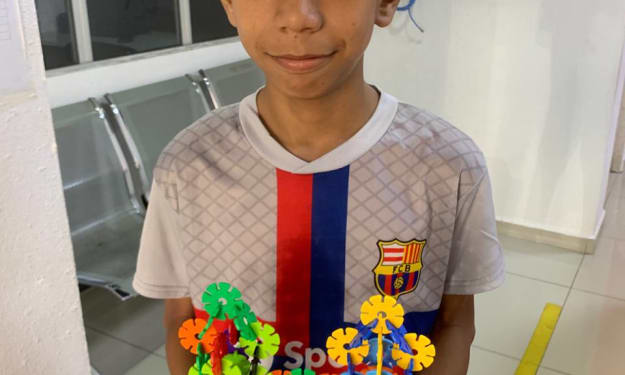How to lower blood pressure
Lowering Your Blood Pressure: A Comprehensive Guide
Here's a comprehensive blog post on how to lower blood pressure:
Lowering Your Blood Pressure: A Comprehensive Guide
High blood pressure, or hypertension, is often called the "silent killer" because it typically has no symptoms but can lead to serious health problems. If you've been diagnosed with high blood pressure or are at risk, this guide will provide you with effective strategies to lower your numbers and improve your overall health.
Understanding Blood Pressure
Before diving into solutions, it's important to understand what blood pressure is and what the numbers mean:
- Systolic pressure (the top number): The pressure in your arteries when your heart beats
- Diastolic pressure (the bottom number): The pressure in your arteries between heartbeats
A normal blood pressure reading is typically below 120/80 mm Hg. Readings of 130/80 mm Hg or higher are considered high.
Lifestyle Changes to Lower Blood Pressure
1. Maintain a Healthy Weight
Excess weight puts additional strain on your heart. Losing even a small amount of weight can make a significant difference:
- Aim for a BMI between 18.5 and 24.9
- Focus on losing 1-2 pounds per week through a combination of diet and exercise
2. Exercise Regularly
Physical activity strengthens your heart and helps it pump more efficiently:
- Aim for at least 150 minutes of moderate aerobic exercise or 75 minutes of vigorous exercise per week
- Include activities like brisk walking, jogging, cycling, or swimming
- Add strength training exercises at least twice a week
3. Adopt a Heart-Healthy Diet
Your diet plays a crucial role in managing blood pressure:
- Follow the DASH (Dietary Approaches to Stop Hypertension) diet, which emphasizes:
- Fruits, vegetables, and whole grains
- Low-fat dairy products, lean meats, fish, and poultry
- Nuts, seeds, and legumes
- Reduce sodium intake to less than 2,300 mg per day (about 1 teaspoon of salt)
- Increase potassium intake through foods like bananas, sweet potatoes, and leafy greens
4. Limit Alcohol Consumption
Excessive alcohol can raise blood pressure:
- Limit intake to no more than one drink per day for women and two for men
- One drink equals 12 oz of beer, 5 oz of wine, or 1.5 oz of 80-proof liquor
5. Quit Smoking
Smoking increases blood pressure and puts you at higher risk for heart attack and stroke:
- Develop a quit plan and set a quit date
- Consider nicotine replacement therapy or prescription medications to help you quit
- Seek support from friends, family, or support groups
6. Manage Stress
Chronic stress can contribute to high blood pressure:
- Practice relaxation techniques like deep breathing, meditation, or yoga
- Engage in activities you enjoy to reduce stress
- Consider counseling or therapy if stress feels overwhelming
7. Get Quality Sleep
Poor sleep quality is linked to high blood pressure:
- Aim for 7-9 hours of sleep per night
- Maintain a consistent sleep schedule
- Create a relaxing bedtime routine
- Address sleep disorders like sleep apnea
8. Monitor Your Blood Pressure at Home
Regular monitoring can help you track your progress:
- Use a reliable home blood pressure monitor
- Take readings at the same time each day
- Keep a log of your readings to share with your doctor
9. Reduce Caffeine Intake
While the long-term effects of caffeine on blood pressure are debated, it can cause short-term spikes:
- Limit coffee, tea, and energy drinks
- Pay attention to how caffeine affects your blood pressure
10. Increase Potassium-Rich Foods
Potassium helps balance the effects of sodium:
- Include foods like bananas, sweet potatoes, spinach, and avocados in your diet
- Consult your doctor before increasing potassium if you have kidney problems
Medications for Blood Pressure
If lifestyle changes aren't enough, your doctor may prescribe medications:
- Diuretics
- ACE inhibitors
- Calcium channel blockers
- Beta-blockers
Always take medications as prescribed and don't stop without consulting your doctor.
Natural Supplements
Some natural supplements may help lower blood pressure, but always consult your doctor before starting any supplement regimen:
- Garlic
- Fish oil
- Coenzyme Q10
- Hibiscus tea
Conclusion
Lowering your blood pressure is a journey that requires commitment and patience. By adopting these lifestyle changes and working closely with your healthcare provider, you can significantly reduce your blood pressure and improve your overall health. Remember, consistency is key – small, sustainable changes can lead to big improvements over time. Regular check-ups and open communication with your doctor will help ensure you're on the right track to managing your blood pressure effectively.
About the Creator
Daisy Kebaso
Hi there! I'm Daisy Kebaso, a passionate storyteller. I recently joined Vocal Media to share my love for crafting engaging stories with a broader audience. Join me on this exciting journey as I explore the magic of storytelling.
Enjoyed the story? Support the Creator.
Subscribe for free to receive all their stories in your feed. You could also pledge your support or give them a one-off tip, letting them know you appreciate their work.







Comments
There are no comments for this story
Be the first to respond and start the conversation.